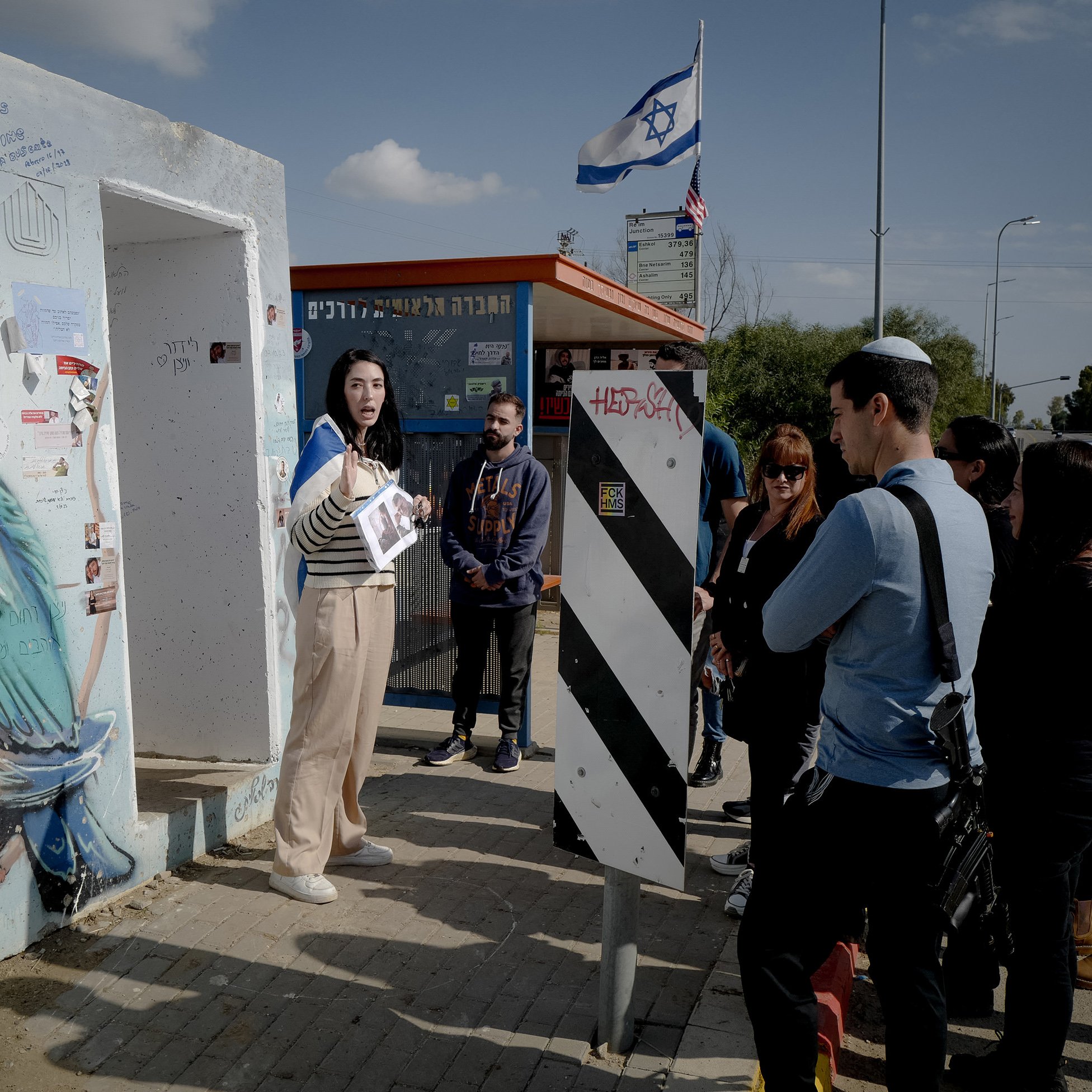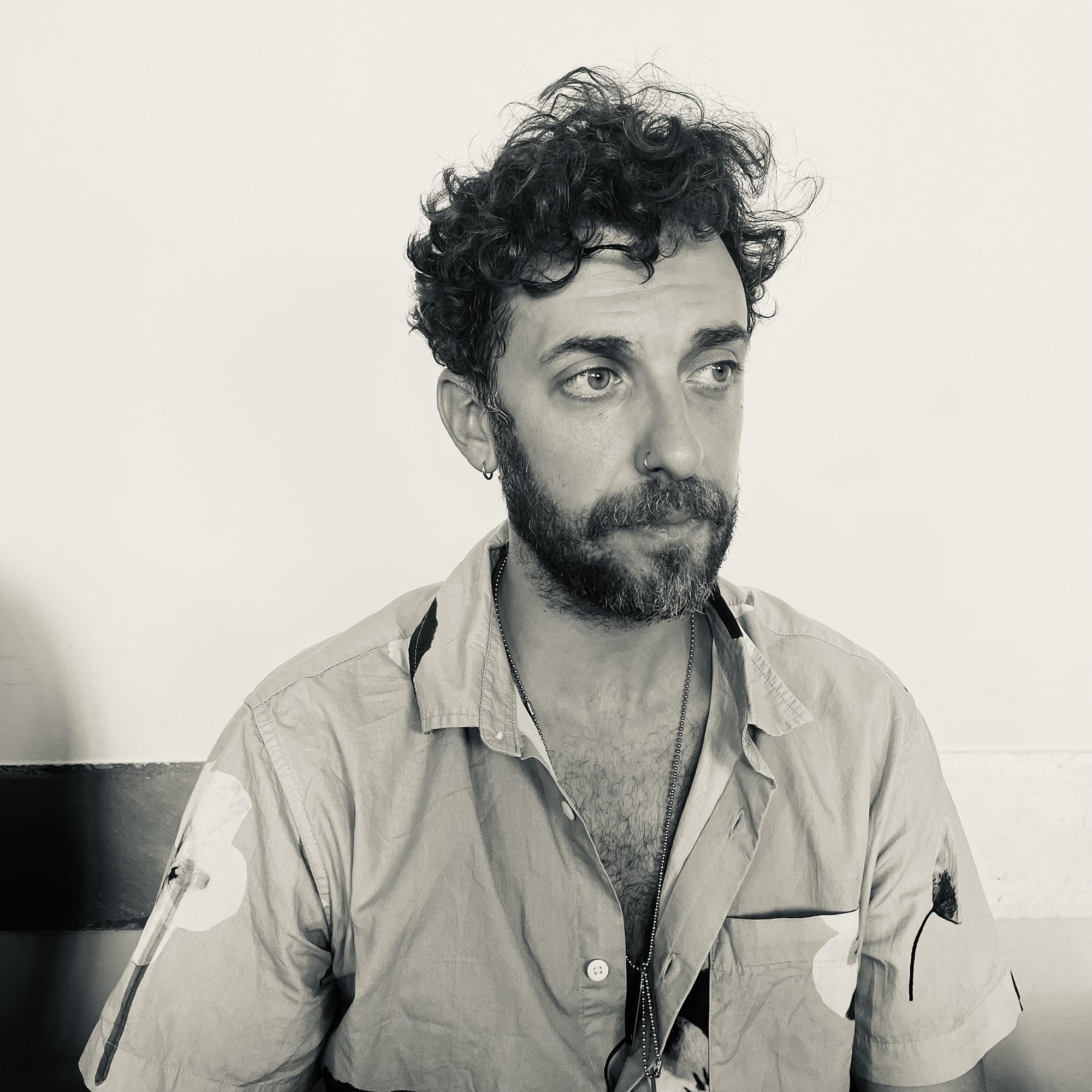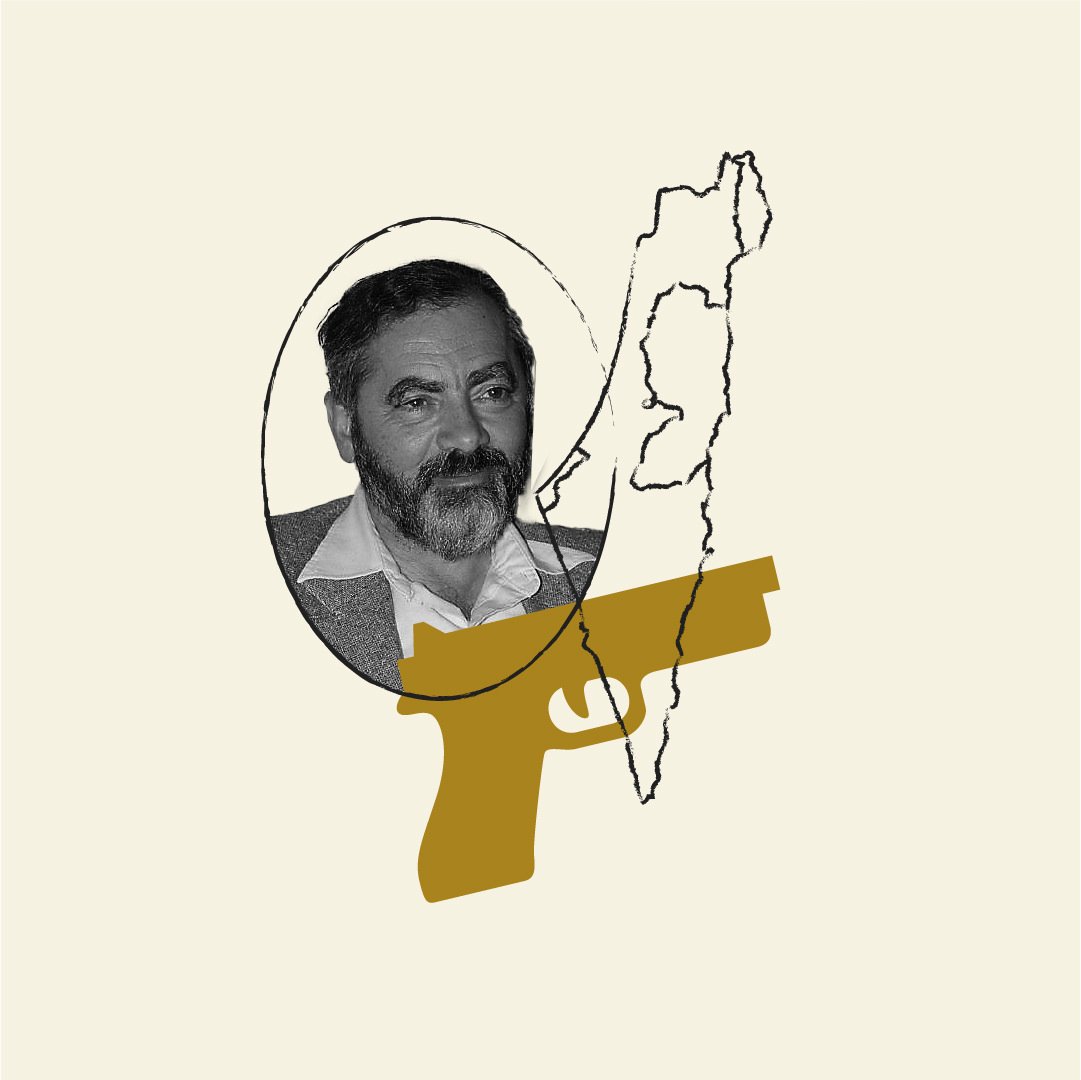Wartime Influencers
Israeli content creators have been invited to tour the sites of the October 7 attacks.
APRIL 9, 2024
PHOTOS BY LUCAS BARIOULET & TEXT BY WILSON FACHE
Since the fall of last year, Israel has invited influencers to visit the kibbutzim attacked on October 7. Over the course of a day, the French magazine Médiapart followed a group of self-proclaimed “hasbara activists”—a Hebrew term that can be translated as “explaining,” in reference to the communication strategies deployed by the State of Israel—on their tour of Southern Israel to the sites of the Hamas attacks, which killed approximately 1,200 people. These volunteers feel imbued with a mission: to defend their country in the trenches of the information war that is being waged online.
On a road in Southern Israel, near Gaza, January 2024. The meeting point is on Route 232 in front of a migunit, one of the bomb shelters that can be found along the roads surrounding Gaza. There are ten attendees in all, Israeli influencers who were invited to participate in this guided tour of the locations most affected by Hamas’s surprise attack. “I wanted to begin our tour here because it’s where one of the greatest stories of heroism from October 7 took place,” begins Shirel Liberman (left), the tour organizer, showing her audience a portrait of Aner Shapiro, a 22 year-old soldier who had taken advantage of his leave to enjoy the Nova electronic music festival where he, along with 363 other people, were assassinated by Hamas.
On a road in Southern Israel, near Gaza, January 2024. Having taken cover in this shelter on October 7 with some thirty other people, Staff Sergeant Aner Shapiro bare-handedly threw back seven grenades launched by the fighters of the Islamist movement before the eighth mortally wounded him. “We’ll take regular breaks to give you time to produce images,” Shirel Liberman tells her audience. Candles on the floor, traces of impact, words of solidarity plastered on the walls: nothing escapes the gaze of these “content creators” who enter the shelter one by one, armed with their cell phones, to take the photos and videos they will share online in support of their nation. “Beyond the facts, what matters are the emotions,” says Tehila Gross, one of the participants.
On a road in Southern Israel, near Gaza, January 2024. “I’ve worked in the field of marketing, public relations and content creation for 16 years, but I’d never defended Israel’s interests, it had never even crossed my mind. And yet it’s become a necessity,” says Limor Reznik, 43, who became an influencer on the professional network LinkedIn after October 7. Wearing a “Bring Them Home” necklace in solidarity with the hostages, she states that “When this war began, colleagues around the world started asking me questions, telling me that the situation was confusing for them and they didn’t know who to believe. And so I started to publish the truth on my social media profiles while trying to remain as objective as possible. That’s how I found myself defending Israel.”
A vacant lot filled with the vehicles destroyed during the Hamas attack, January 2024. Wearing an Israeli flag like a cape, Shirel Liberman (center right) says that she learned all about the inner workings of “public diplomacy” during a training session with the Ministry of Foreign Affairs. Liberman organizes tours of the attacked kibbutzim for influencers. On this tour, her second one within the space of a few weeks and aimed at influencers of all stripes, the communications consultant hopes to flood social networks with pro-Israeli content, in particular to counter the criticism that Israel is facing over its deadly offensive in the Gaza Strip, where more than 33,000 people have already been killed, according to the Gaza ministry of health.
On the site of the Nova Festival, near the Re’im kibbutz, January 2024. “I wanted to invite influencers and content creators so that they could influence their audiences, since Israel is facing a lot of criticism as well as denial. Some people don’t believe in the events that took place here, in particular the stories of sexual violence,” says Shirel Liberman, 32. “These organized tours are a response to the criticism and the denial. It’s also a way of saying ‘never forget.’”
On the site of the Nova Festival, near the Re’im kibbutz, January 2024. It was fighting denial that motivated Dorit Goldflam to use her phone to defend her country online against conspiracy theories that seek to deny the October 7 massacre. “It reminds me of Holocaust denial,” she laments. “To see, in 2024, people contesting what happened only a few months ago when there’s so much evidence, including images filmed by Hamas itself — I can’t understand or accept it. That’s why I want to remind people what happened. There’s no need to take our word for it: it’s enough to look at the proof.” In front of Goldflam, a woman sounds her Shofar in homage to the victims.
On the site of the Nova Festival, near the Re’im kibbutz, January 2024. Yoav Zammir built a following of nearly 204,000 people on TikTok, 112,000 on YouTube and 76,000 on Instagram through humorous videos and beatboxing. Usually exuberant in front of a camera, he seems subdued as he walks around the site of the Nova Festival. “Two of my friends were killed here,” he confides, arriving before a portrait of one of them.
Tel Aviv, February 2024. After October 7, Yoav Zammir decided to use his influence to defend his country from his bedroom, which he’s decorated with Israeli flags and photos of the hostages. Seated at his desk, he talks to people from around the world via video chat platforms, mocking those who support Palestine and sharing clips of these interactions with his followers. Like him, many Israeli influencers were hardly keyboard warriors before October 7 — instead producing lifestyle, travel, entrepreneurship or music-related content — and only recently became activists of hasbara, a Hebrew term that can be translated as “explaining,” in reference to the communication strategies deployed by the State of Israel.
Southern Israel, January 2024. Keren Barkat, an influencer on LinkedIn, uses her phone to film the charred vehicles destroyed during the October 7 attacks. According to The Institute for National Security Studies (INSS), a research center attached to Tel Aviv University, this war, unlike the previous clashes between Hamas and Israel, has led to the mobilization of “thousands of Israeli citizens” who have joined in “the global fight for the narrative.” This report published in mid-December also notes that “government ministries and the security community seek to make use of the civilian hasbara potential. However, over time, a significant number of these initiatives have shut down when the those who launched them discovered that their efforts were ineffective against the tsunami of pro-Palestinian narrative worldwide, or because they had to go back to work.”
Kfar Aza, January 2024. The day ends with a tour of the Kfar Aza kibbutz, a community near Gaza where more than 60 residents were killed and around 20 taken hostage. The Gazan enclave is so close by that ruins can be glimpsed in the background. From time to time, the sound of an Israeli artillery cannon being fired echoes throughout the village, followed by the whistle of the shell tearing through the sky and, a few seconds later, the thud of the explosion.
Kfar Aza, January 2024. As they enter the war zone, the influencers are asked to don bullet-proof vests. “If the alarm sounds, we’ll have less than ten seconds to take shelter. If necessary, run into one of the kibbutz’s bomb shelters or get on the ground with your hands on your head,” warns Captain Ron, a reservist in the IDF Spokesperson’s Unit. Ceci Denot, alias @Gordameir, a pro-Israeli influencer from Argentina, is one of the participants in this tour.
Kfar Aza, January 2024. “The battle being waged online is important. And young people between 18 and 25 need to receive adequate information in order to understand this situation. It’s clear that they lack precise knowledge and that they just believe what they see on TikTok and Instagram without questioning any of this content. I think it’s important to show them the truth, or at least another side of the story,” says Captain Ron (center right). Before saying goodbye, she addresses a final message to her guests: “Use your influence to influence others, because silence is not an option.”
This is a translation of the photo essay originally published in French in Mediapart in February 2024.
















